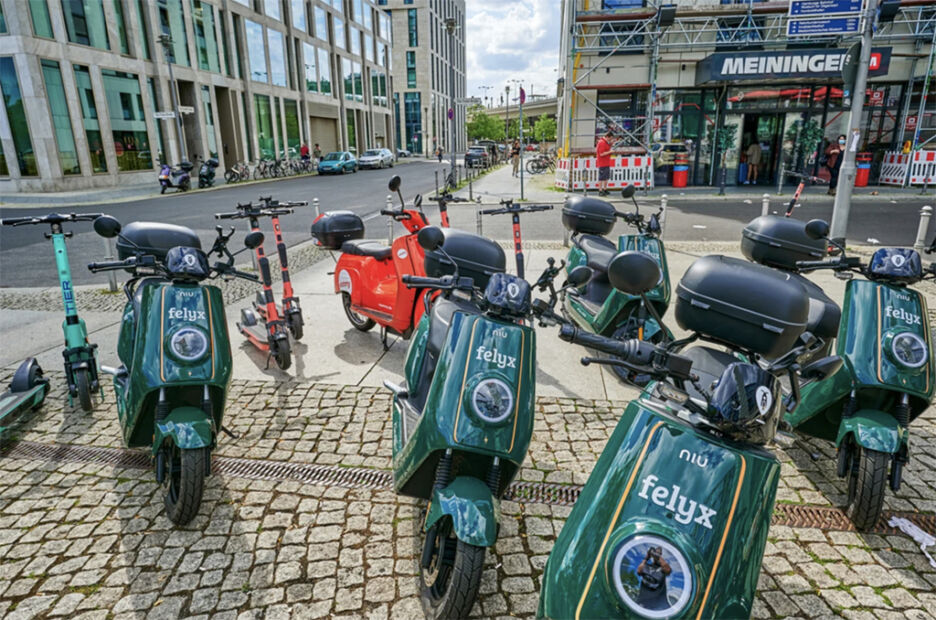Vianova lets Dutch cities analyse mobility data
- October 24, 2022
- Steve Rogerson

The Dutch cities of Amsterdam, Utrecht and Eindhoven have teamed up with mobility data platform Vianova to improve collaboration with mobility operators through data insights.
The Netherlands is one of the most advanced countries in terms of sustainable mobility. In a country where more than half of the inhabitants ride a bike at least twice a week, the development of shared mobility offers potential to decarbonise cities’ transportation systems further.
With more than 5000 shared mobility devices in the capital city alone, and numerous infrastructures dedicated to active mobility in the country, the Netherlands maintains its status as a pioneer country for carbon neutral transport.
Partnering with French mobility data start-up Vianova, the cities want to understand how sustainable modes of travel can be developed that work with existing public transport. Today, this challenge cannot be met without having a thorough understanding of the mobility data that are crucial to implement public policies that guarantee the efficiency and safety of the transport system.
Amsterdam, Utrecht and Eindhoven partnered with Vianova to bridge the communication gap between public authorities and mobility operators. The cities want to define the best policies and urban planning for mobility services thanks to actionable data insights.
These insights are derived from mobility data feeds that Dutch cities can easily retrieve from Vianova’s data exchange, where data providers can accept or decline different data requests, and visualise the use cases for these data. All mobility providers in the Netherlands are already sharing their data with cities through this marketplace, and more transport practitioners are joining the market, adding feeds from industry segments including automotive manufacturers and charge point operators (CPOs).
This will keep unlocking more use cases beyond shared micro-mobility management, for example road safety intelligence, kerb space management and infrastructure planning.
Since early this year, Vianova has been helping the three Dutch cities achieve various use cases such as monitoring moped flows in and out of Amsterdam’s adjacent cities: trips starting or ending outside of Amsterdam are one of the most popular uses of mopeds in the city, accounting for six of the twelve most popular origin and destination pairings. The city uses the Vianova platform to identify these trends and understand the impact on the overall fleet size within the city as a result of these inflows and outflows.
Utrecht is designing parking policies to improve public order. Communication between the city and its mobility provider, Tier, is critical to the success of the shared mobility programme. Utrecht uses Vianova’s tools to publish information about the location of approved parking zones for bicycles and mopeds, and to notify Tier when devices are parked out-of-bounds to reduce citizens’ complaints.
Taking a multimodal approach to shared mobility is Eindhoven. With bicycles and mopeds from different providers, Eindhoven uses the Vianova platform to understand the comparative impact between mode types. Evaluating metrics such as trip distance, duration and frequency, the city can develop a better understanding of how the two micro-mobility modes serve different niches in the region’s transportation ecosystem.
The Dutch cities are also at the forefront of research on how to make transportation more sustainable. Amsterdam is among the first users of Vianova’s new CO2 emissions monitoring and reduction tool. This AI-powered feature facilitates the dynamic distribution of shared fleets across multiple modes. It enables cities to identify policies that would help achieve the highest CO2 reduction when balanced against other priorities of the city. The tool represents potential for both transport providers and cities to design the most efficient transportation system possible while curbing carbon emissions.
The Dutch mobility ecosystem is paving the way for the development of shared mobility policies and is aware this cannot be achieved without an extensive and effortless exchange of data. To that extent, Vianova’s data platform and data exchange have been built to be future proof to enable the best governance and transparency within the ecosystem.
Moreover, the country’s largest cities are working on a national mobility data standard, the CDS-M format, which Vianova can support for them to improve public authorities’ understanding and mobility policy management options.
Through its platform and API suite, Vianova serves 100 cities, transport providers and enterprises across the globe, thus enabling the offset of five million tons of CO2 every year. Vianova has offices in Paris, Zürich, London, Berlin and Dover in the USA.




